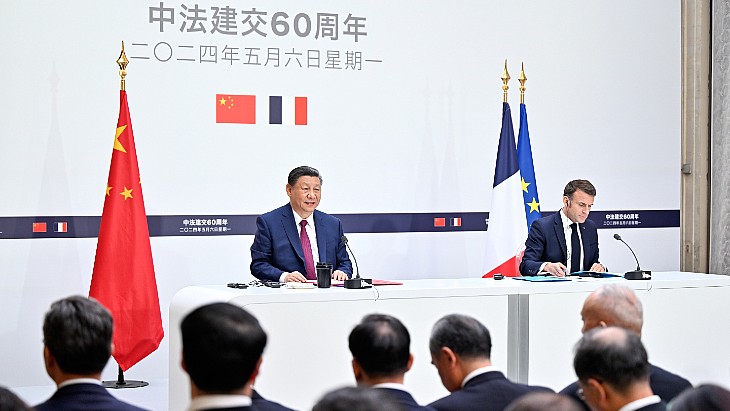EU reiterates support for JCPoA, expresses concern
.jpg)
"We are determined to continue working with the international community to preserve the JCPoA. The strategic importance of the agreement remains and its full implementation is essential. It is a key element of the global nuclear non-proliferation architecture and it is crucial for regional, European and international security," the EU said. It called on all countries to "to refrain from undermining implementation of commitments" under it.
The EU continues to "deeply regret" the USA's withdrawal from the JCPoA and its re-imposed sanctions.
"Alongside the verified full implementation by Iran of its nuclear-related commitments, the lifting of nuclear-related sanctions is an essential part of the agreement. The EU has fully upheld its JCPoA commitments, including sanctions lifting as foreseen under the JCPoA," the EU said.
Addressing the Board of Governors today, IAEA Director General Rafael Mariano Grossi said sustained engagement and cooperation were essential to address and make progress with the agency's work to verify Iran's implementation of its nuclear-related commitments under the JCPoA. He also said an update had been issued to governments on the agency's verification and monitoring of Iran's implementation of its nuclear-related commitments.
"The agency continues to verify the non-diversion of nuclear material declared by Iran under its Safeguards Agreement," Grossi said. "The presence of multiple uranium particles of anthropogenic origin, including isotopically altered particles, at a location in Iran not declared to the agency still needs to be fully and promptly explained by Iran to allay any possible concerns about the correctness and completeness of its safeguards declarations. Evaluations regarding the absence of undeclared nuclear material and activities in Iran continue."
Earlier this month, Iran's FARS news agency reported that the Iranian parliament had approved a bill requiring the Atomic Energy Organisation of Iran to increase uranium enrichment at the Fordow site.
The EU, in its statement, noted that that the IAEA had not observed any changes to the level of cooperation by Iran in relation to the agency's verification and monitoring activities under the plan. "At the same time, the EU deeply regrets Iran's announcement of 5 January that its nuclear programme would no longer be subject to any restrictions in the operational sphere," it said.
"The EU reiterates its clear and grave concern about Iran's continued accumulation of low enriched uranium in excess of the JCPoA threshold and that its maximum enrichment level remains above the limit set by the agreement. We also remain very concerned about enrichment in Fordow. Iran has continued testing and accumulating uranium with advanced centrifuges, which significantly increases its enrichment capacity," it said.
Iran's current stockpile of 2442.9kg of low-enriched uranium - 12 times the maximum quantity of 202.8 kg allowed by the JCPoA - is an "alarming departure" from one of the JCPoA's key provisions, it added.
"We strongly urge Iran to reverse all activities that are inconsistent with the JCPoA and return to full implementation of its commitments without delay," it said.
The EU also requested that the IAEA director general's report be made public.
Albania, Bosnia and Herzegovina, Iceland, Liechtenstein, Montenegro, Norway, Turkey, the Republic of Moldova, the Republic of North Macedonia, Serbia and San Marino have also aligned themselves with the EU statement.










_88592.jpg)

